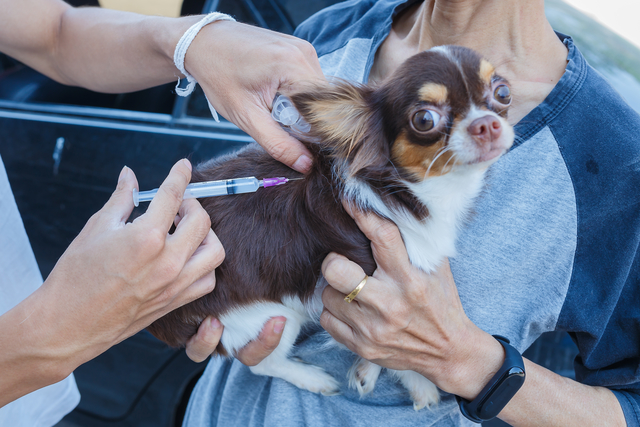After more than 450 dogs arrived in the U.S. with fraudulent rabies certificates last year, the country is banning the importation of dogs from more than 100 countries.
In 2020, the Centers for Disease Control (CDC) discovered a 52 percent increase in falsified rabies certificates of dogs coming into the country compared to the previous two years. The dramatic increase is likely connected to an increase in adoption demand during the COVID-19 pandemic. Now, fewer animals will be permitted to arrive in the country which could affect already at-risk dogs.

“Early on in the pandemic, the shelters were reporting record-low numbers because everybody was adopting pandemic puppies,” Dr. Emily Pieracci of the CDC told NPR. “And so there is a possibility that there may be a correlation between empty shelters here driving an increased demand to purchase puppies overseas.”
Pieracci says that having animals shipped into the U.S. without their rabies vaccinations could be a major threat to public health. Some breeders in countries considered at high risk for rabies may have cut corners due to the pandemic and didn’t keep up with their rabies vaccination programs, thus creating the risk of importing a rabid dog into the country to an unknowing family.

“We’re doing this to make sure that we protect the health and safety of dogs that are imported into the United States, as well as protect the public’s health,” Pieracci said.
The U.S. imports about 1 million dogs each year, NPR reports. Starting July 14, the CDC will ban the importation of any dogs from 113 countries considered at high risk for rabies for one year. The countries include Kenya, Uganda, Brazil, Colombia, Russia, Vietnam, North Korea, Nepal, China, and Syria among others.
While this aims to protect American citizens from the rabies virus, the unfortunate outcome of the ban means that certain rescue groups that traditionally import dogs from these countries will no longer be able to. Unfortunately, this includes groups that rescue dogs from the dog meat trade in countries such as China.
One of the organizations that will be affected by this ban is China Rescue Dogs, which works on the ground in China to rescue dogs from the meat trade. One of its recent rescues is Golden, a senior Golden Retriever who was saved from becoming dog meat soup during the Yulin Dog Meat Festival.

Once fully vetting and vaccinating Golden, the organization shipped the dog from China to Canada and then to the U.S. He’s now happily in his forever home thanks to the rescue.
While the news of the ban is disappointing for the rescue group, it will not cause their efforts to slow in the slightest, the group said.
“As devastating as this news is, we will not be sitting on the sidelines,” the organization told iHeartDogs. “Our mission remains the same, and our commitment is now even stronger. Over the past few years, and through the Covid pandemic, we have learned how to successfully navigate and pivot through many new challenges, regulations and restrictions, and we will continue to do so successfully.”
H/T: NPR
 Toledo, United States.
Toledo, United States.